Posted by: Eye Centers of Florida in Eye Health
What Is Diabetic Eye Disease?
And What Can We Do About It?
Approximately 10% of Americans have the diagnosis of diabetes, and the percentage appears to be trending up in recent years. Some of the most feared complications of diabetes are ones surrounding the sense of sight.
We cherish our eyesight, and we should be motivated to protect it, but a recent study found that 60% of Americans that have diabetes are not getting annual eye examinations. The reason this is important is because the blinding complications of diabetes can be prevented by early diagnosis and intervention by your ophthalmologist.
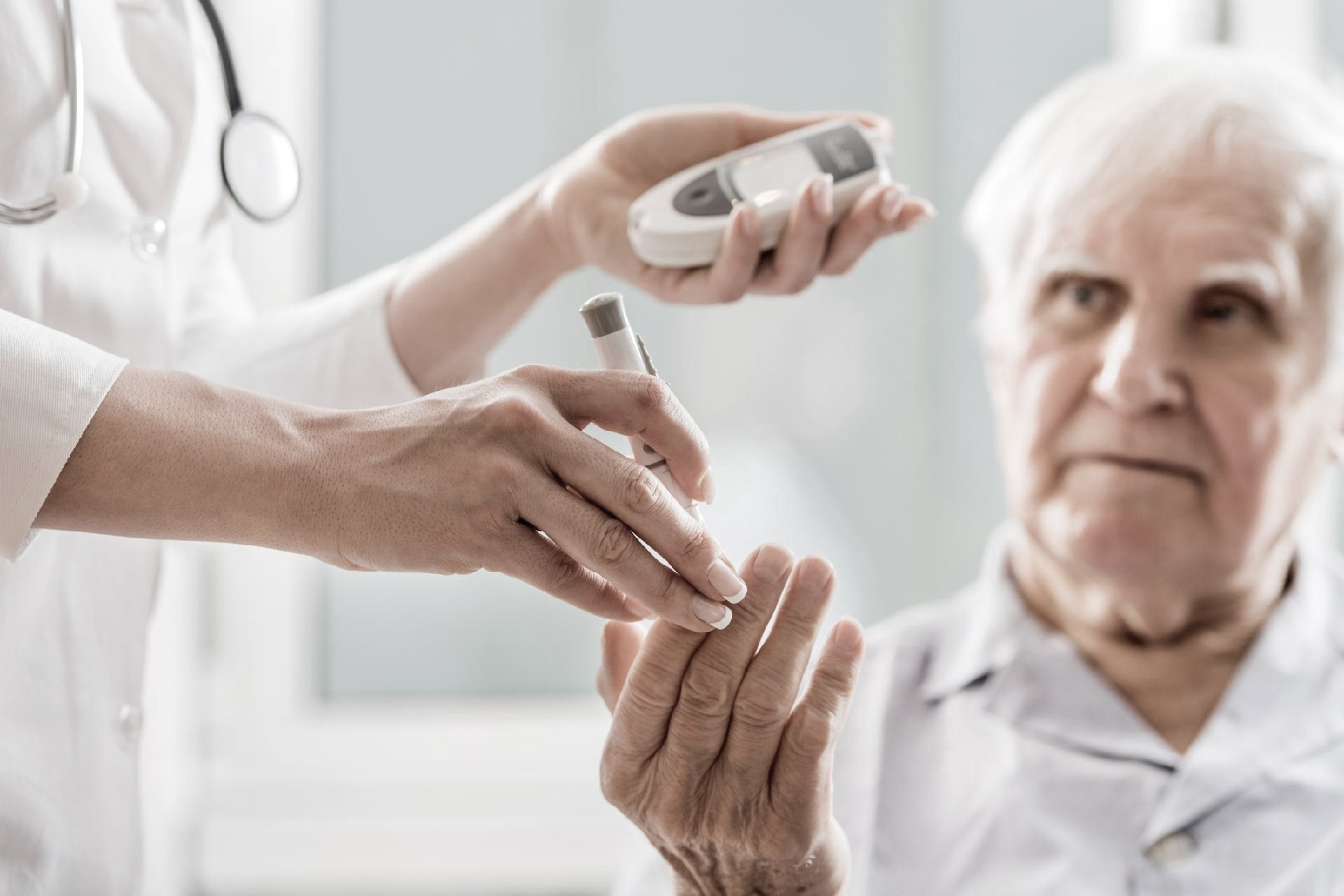
What Causes Diabetic Eye Disease?
Diabetes and the resulting elevated blood sugar can lead to damage in the inner lining of the blood vessels in the eye. As the vessels are damaged, they begin to leak fluid, blood, and fats into the retina (the visual seeing part of the eye). Swelling can occur in the retina, as can continued bleeding into the retina. These complications can lead to reversable or, if left untreated, irreversible damage to the eye.
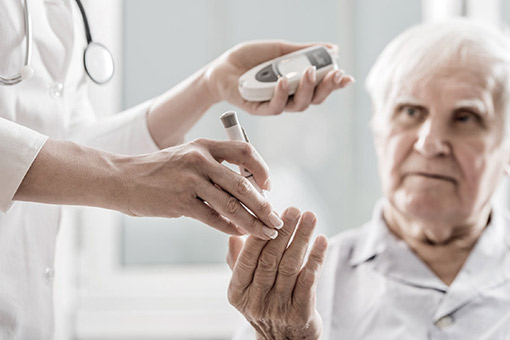
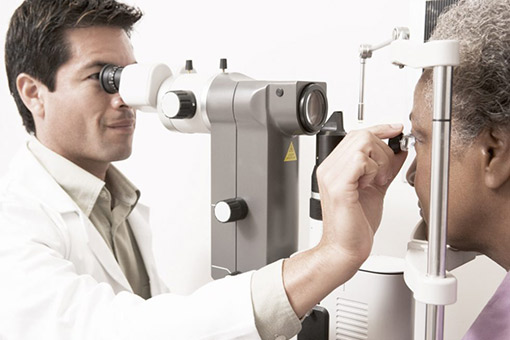
How Do We Test for Diabetic Eye Disease?
When your doctor does your dilated eye examination, if you have diabetic retinopathy, they will see the damage occurring when they look inside your eye. Based on exactly where in the eye the damage is occurring, the effects can be mild or very severe. Your ophthalmologist will then order a battery of specialized tests to determine the severity of your diabetic retinopathy.
 How is Diabetic Eye Disease Treated?
How is Diabetic Eye Disease Treated?
If indicated, your ophthalmologist may prescribe a series of injections into the eye to save your vision. These injections are designed to reduce the swelling inside of the retina and have been shown to reduce the amount of diabetic retinopathy. The frequency and total number of injections and the medication that will be used will be determined by your ophthalmologist. The thought of having an injection in the eye is scary at first, because it seems like it will be painful. Eye specialists are highly-trained surgeons and can give eye drops to totally numb the eye so that you will not feel these injections.
In some cases, a laser will be recommended for other complications of diabetic eye disease. A laser is a highly-focused light beam that will be focused inside the eye to treat areas of the eye that have significant swelling or have abnormal blood vessels that are growing inside the eye. These vessels can grow rapidly because the diabetic eye suffers from lack of oxygen in its circulation. One or more laser sessions may be indicated to treat these areas of the eye that are damaged.
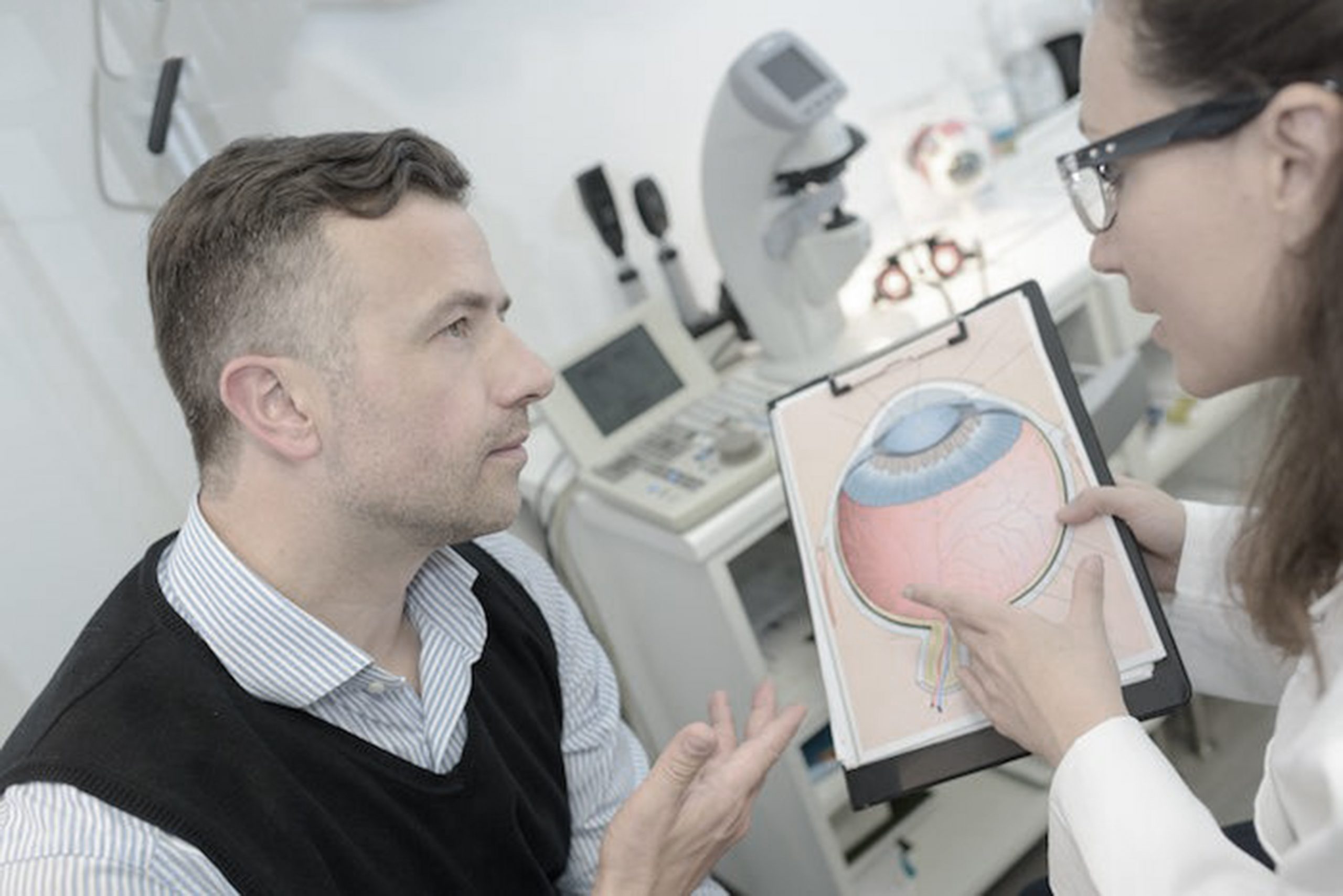
How is Diabetic Eye Disease Treated?
If indicated, your ophthalmologist may prescribe a series of injections into the eye to save your vision. These injections are designed to reduce the swelling inside of the retina and have been shown to reduce the amount of diabetic retinopathy. The frequency and total number of injections and the medication that will be used will be determined by your ophthalmologist. The thought of having an injection in the eye is scary at first, because it seems like it will be painful. Eye specialists are highly-trained surgeons and can give eye drops to totally numb the eye so that you will not feel these injections.
In some cases, a laser will be recommended for other complications of diabetic eye disease. A laser is a highly-focused light beam that will be focused inside the eye to treat areas of the eye that have significant swelling or have abnormal blood vessels that are growing inside the eye. These vessels can grow rapidly because the diabetic eye suffers from lack of oxygen in its circulation. One or more laser sessions may be indicated to treat these areas of the eye that are damaged.
Are You at Risk for Diabetic Eye Disease?
Eye Centers of Florida Can Help
Do yourself a favor and make sure that you get a yearly dilated eye exam by an ophthalmologist or optometrist so that your sight can be protected. If you notice any sudden change in your vision, such as blurred vision or sudden onset of floaters, contact your eye specialist immediately. To make an appointment at any of Eye Centers of Florida’s convenient locations throughout Southwest Florida at 888-393-2778.
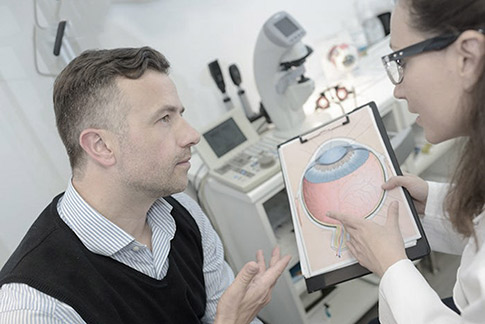 How is Diabetic Eye Disease Treated?
How is Diabetic Eye Disease Treated?